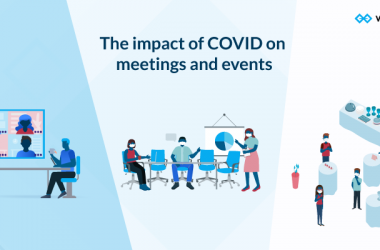A virtual catch up with a friend in the city led us to reflect on the very different 2021 landscape. As vaccines become mainstream enabling people engagement / interaction and as organisations get in shape for a semblance of “back to business”, the future is improving.
One dilemma came to mind from that discussion – the varying levels of human psychology that will be prevalent. There will be some groups of people where the pent-up need and desire to meet to socialise and network will come bouncing back, and in some ways that exuberance may drive some unnecessary meetings as people just want to meet. There will be other groups, where the past 12+ months of caution and the change to home-working patterns, is now a comfortable and habitual one. They will be resistant to going back to the old ways and hold onto a low / no travel desire to attend face-to-face meetings and events.
In the short term, both will just have to play out as companies accommodate the new environment and workforces which are less homogenous. Organisations will have to accept and manage the pent up “get out and get going again” meeting demand. After all, Zoom or Teams meetings and events are far from ideal, given the all-important non-verbal communication cues and the opportunity to interact and innovate together. Of course, the reality is that if unchecked and addressed, there could be a negative undercurrent of a) ineffectual meetings – desired outcomes not met; b) bloating of the travel and meeting budget cost line fuelled by any unnecessary meeting-related travel; and c) the desired experience and knowledge transfer. What is crucial is that organisations and companies should thoughtfully plan what meetings and events activity is key to their customer, supplier and partner management, plus what internal activity is needed, or can stay online. A considered and thoughtful approach with policies and sign-offs to reflect the new reality.
My reflection has not led me to all the answers. Being mindful of potential challenges means organisations can make conscious observations and decisions as they plan for the “back to usual business” agenda. Data insights will be critical here along with effective communication, which may need to be enshrined in policy. Certainly, there will be a need for clear direction of organisational expectations of meeting hosts (what type of meetings should be held by what medium, and a conscious thought process around this). There is a great opportunity to “reset” people – and company – behaviours to ensure the mistakes of the past are not repeated. I am going to focus on exploring credible ways to give organisations a better understanding of the value they get from their meetings’ spend. This will include time, travel and expense, the lost opportunity of not meeting, and the impact of poor meeting practises. It is the entrepreneurial problem solver in me, and the time for change has never been more relevant.











Totally agree … thanks for sharing 🙂